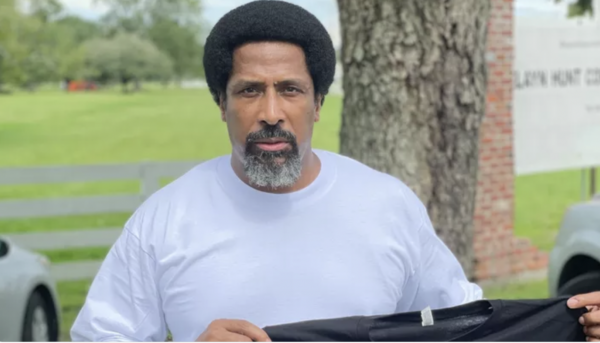‘There Was nothing I Could Do’: New Orleans Man Wrongfully Convicted as Teen for Rape Freed After 36 Years
Blood and semen evidence that could’ve cleared a Black man’s name in a home-invasion rape was never considered in his trial, and he spent more than 35 years in prison as a result, the longest known wrongful incarceration of a juvenile in Louisiana’s history and the fifth-longest in the nation.
Sullivan Walter, 53, was freed from state prison on Aug. 25, 2022, after a judge overturned his conviction. The New Orleans man was 17 years old when he was arrested, prosecuted as an adult and sentenced to 39 years for rape and burglary.
“To say this was unconscionable is an understatement,” Judge Darryl Derbigny told Walter.
Neither Walter’s defense attorney nor prosecutors presented the DNA evidence at his trial, reports show. His semen reportedly was not a match for the assailant who held a knife to a woman’s throat on May 9, 1986, and threatened to harm her 8-year-old son while he slept.
The suspect mostly wore a mask, and the room was reportedly dark, but the victim, now deceased, identified Walter as the culprit six weeks later. Detectives added Walter’s picture to a photo lineup shown to the woman after he was arrested for an unrelated crime. The victim’s identification was the only evidence used to convict him.
The legal director for Innocence Project New Orleans, an organization that helped Walter appeal his conviction, Richard Davis, said Walter’s race was a factor in his wrongful conviction.
According to the National Registry of Exonerations, Black people make up about 13 percent of the country’s population but account for 47 percent of wrongful convictions nationwide.
The victim made a cross-racial identification. Studies show they can increase the chance of mistaken identity.
“The lawyers and law enforcement involved acted as if they believed that they could do what they chose to a Black teenager from a poor family and would never be scrutinized or held to account,” Davis said in a written statement. “This is not just about individuals and their choices, but the systems that let them happen.”
The victim’s son reportedly expressed regret to Walter on her behalf.
According to reports, seminal fluid retrieved from the woman’s shorts showed that the perpetrator had a non-secretor blood type. However, no one tested Walter’s blood to see if he was a non-secretor.
“I couldn’t believe it,” Walter said of the trial. “I couldn’t believe this was happening to me.”
He added: “I felt like I was going up against a giant. There was nothing I could do.”
Two years later, after Walter filed an appeal, his blood was tested. He is a secretor. Still, his request for a new trial was denied because the expert who presented the results in the trial backtracked on the findings, saying he “could not say whether” fluids were from a non-secretor.
Local prosecutors said the district attorney at the time asked the expert to “fudge” his findings.
“This is horrible,” the judge said. “I’m at a loss of words to express the sorrow and the anger I have at the treatment you’ve been dealt by the system.”
An Innocence Project New Orleans report shows Harry Connick Sr., who was the district attorney from 1973 to 2002 had a track record of withholding evidence that would acquit defendants. The report points to at least 34 cases where evidence was withheld during Connick’s tenure, including nine death row cases.
Walter reportedly broke down in tears when Derbigny announced he would be released. Now that he is free, Walter wants to spend some time helping others who have been wrongfully convicted.
“I’m just ready to live,” Walter said. “I just want to live an honest, free life.”

